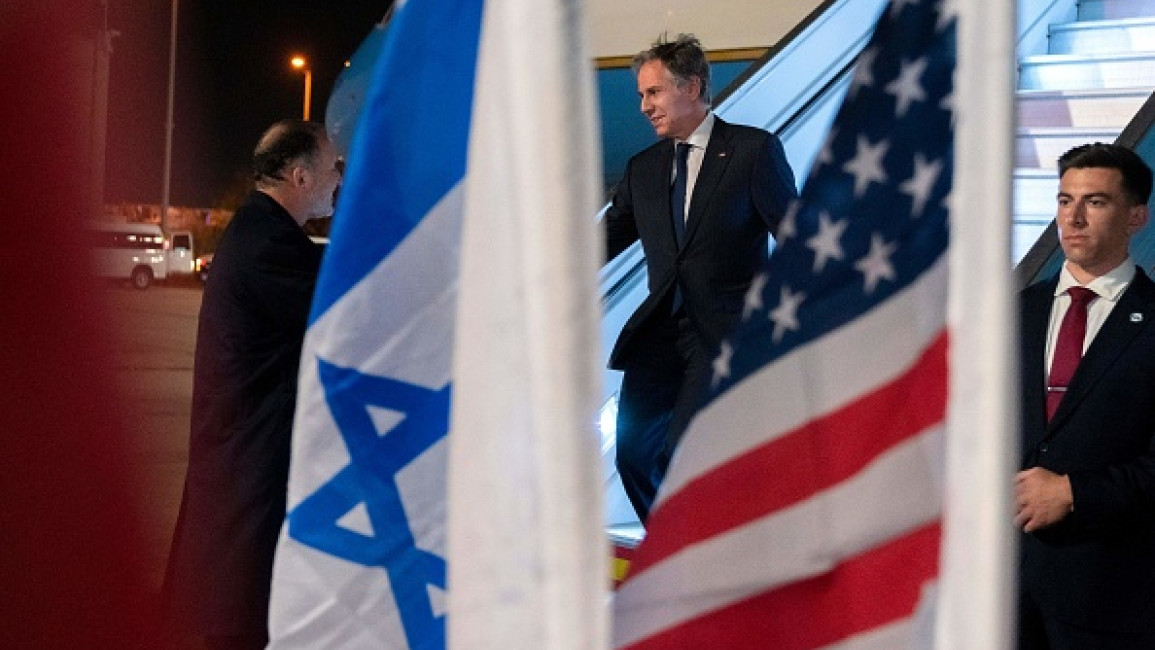Palestinians reject US state department's 'inconclusive' investigation on Abu Akleh's killing
The results of the US investigation on the killing of Al-Jazeera correspondent Shireen Abu Akleh have sparked anger across Palestine, especially as it seemed to have exonerated the Israeli army from deliberately killing the prominent Palestinian reporter.
Speaking to The New Arab, Palestinians said that the United States and Israeli are "two sides of the same coin in their dealing with the Palestinian cause" and criticised the Palestinian Authority's (PA) cooperation with both sides despite "blatant" US bias towards Israel.
Hamada al-Khatib, a resident in Gaza, criticised the Palestinian Authority's acceptance of handing over the bullet to US experts, adding that "Palestinians cannot expect any good news from the US that has always disgracefully aligned itself with all Israeli crimes."
"Israel launched many devastating wars against the people of Gaza, but the US did not criticise it even once. Rather, it defended Israeli crimes and considered it a legitimate right of the occupation to defend its citizens," al-Khatib said.
Al-Khatib deplored the Palestinian Authority's cooperation with the US and its handing over the bullet that killed Abu Akleh, considering it a "political partner" in the premeditated murder of the journalist.
US says Palestinian journalist Shireen Abu Akleh 'unintentionally' shot by Israelhttps://t.co/tKPe6ZCVTm
— The New Arab (@The_NewArab) July 4, 2022
Since 2008, Israel has launched four devastating wars on the Gaza Strip, leaving thousands of victims, the majority of whom were civilians, women, and children, and destroying many residential buildings and infrastructure.
"The situation is not much different in the West Bank, where the Israeli army used to commit massacres against the Palestinians without seeing any US criticizing its ally Israel," Abdel Salam al-Salehi, a resident in Ramallah in the occupied West Bank, told The New Arab.
"We cannot trust the United States, which considers the right holders to be criminals, while supporting the occupation economically, politically, and militarily," he said.
Meanwhile, several Palestinian political analysts condemned the PA's cooperation with the US investigation as means to achieve political gains in negotiations with Israel under US auspices.
Shireen Abu Akleh's family condemns US probe claiming Israeli bullet 'unintentional'https://t.co/L9VP5HOnV4
— The New Arab (@The_NewArab) July 4, 2022
“The PA is doing its best to achieve some economic and political achievements by cooperating with Israel and the US even if they will deny the Israeli army killed Abu Akleh,” said Sharhabil al-Gharib, a Gaza-based analyst, to The New Arab.
"It is clear that the handing over of the bullet circumvented the crime by the PA in an attempt to close the file and prevent it from filing a complaint against Israel in the International Court," he mused.
"It is unreasonable to hand the bullet to your killer, which calls for a national and legal stance towards the behaviour of the PA in the Abu Akleh case, he added.
Ayman Al-Rafaty, another Gaza-based analyst, told The New Arab that "no one can expect a better result by the US."
"Neither the US nor Israel will bear their responsibilities towards the Palestinians," he added.
However, he believes, the PA is seeking to overcome its economic crisis by restoring negotiations and restoring international support.
The United States said Monday that Abu Akleh was "likely killed" by gunfire from Israeli positions but that "there was no reason to believe her death was intentional."
The State Department also said the United States could not make a "definitive conclusion" on the origin of the bullet that killed her on 11 May, which was handed over by the Palestinian Authority.
The journalist, who held US citizenship, was killed while covering an Israeli army operation in the Jenin camp in the north of the occupied West Bank, while she was wearing a vest marked "Press" and a helmet when she was shot in the head.
The State Department said that the US could not make a "definitive conclusion" on the origin of the bullet that killed her despite numerous reports by media agencies and human rights organisations that directly point to Israel.



